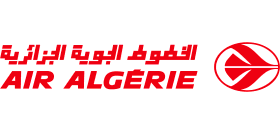 Air Algérie’s Language Shift Opens Doors for Savvy Agents
Air Algérie’s Language Shift Opens Doors for Savvy Agents
Air Algérie is making a significant change, transitioning to Arabic-English bilingual tickets. This move, part of a broader modernization strategy, aligns with international aviation standards and presents both challenges and opportunities for African travel agents. By understanding the implications of this shift, agents can proactively adapt and leverage the change to enhance their services and cater to a wider clientele.
While the move might initially pose some communication hurdles for French-speaking agents and travelers, the long-term benefits are substantial. Air Algérie is a major player in the North African aviation market, connecting numerous destinations across the continent. This language adaptation positions the airline for broader international partnerships and strengthens its role as a key hub for travel between Africa and the rest of the world.
The transition also reflects a growing trend in African aviation towards embracing global standards while retaining local relevance. English, as the dominant language of international aviation, facilitates smoother communication and operational efficiency. By adopting this standard, Air Algérie streamlines its processes, enhances its international appeal, and positions itself for greater integration into the global aviation network. This creates new opportunities for African travel agents to connect their clients with a wider range of destinations and travel options.
Travel agents can leverage this shift by focusing on the positive aspects for their clients. The adoption of English on tickets simplifies travel for a broader international audience, making Air Algérie a more accessible option for English-speaking travelers. This opens up new markets and expands the potential client base for African travel agents. By promoting the airline’s enhanced international connectivity and streamlined services, agents can attract new customers and strengthen their position in the market.
The estimated implementation cost for this change is €1.75 million, covering IT system updates, staff training, and new ticket templates. The projected timeline for full implementation is six months, with key milestones including initial system analysis, IT updates, staff training, and final deployment. This investment underscores Air Algérie’s commitment to modernization and its long-term vision for growth in the African aviation market.
Air Algérie carries an estimated six million passengers annually, with 45% being French-speaking, 30% English-speaking, and 25% Arabic-speaking. This diverse passenger demographic highlights the importance of multilingual services in the African aviation landscape. While the shift to Arabic and English on tickets aligns with international standards, Air Algérie maintains its commitment to serving its diverse customer base through multilingual staff and in-flight services.
A comparative analysis of other African carriers reveals a diverse range of language policies. While English is the most common language, appearing on most airline documentation, many airlines adopt bilingual or even trilingual policies to cater to their specific passenger demographics. This reflects the multilingual nature of the African continent and the importance of adapting language services to local contexts.
Air Algérie’s move is a strategic step towards modernization and internationalization. While the transition may present initial challenges for some African travel agents, the long-term benefits are significant. By embracing this change, promoting the airline’s enhanced connectivity, and focusing on the positive aspects for their clients, travel agents can capitalize on this opportunity to expand their market reach and solidify their position in the dynamic African travel industry.
